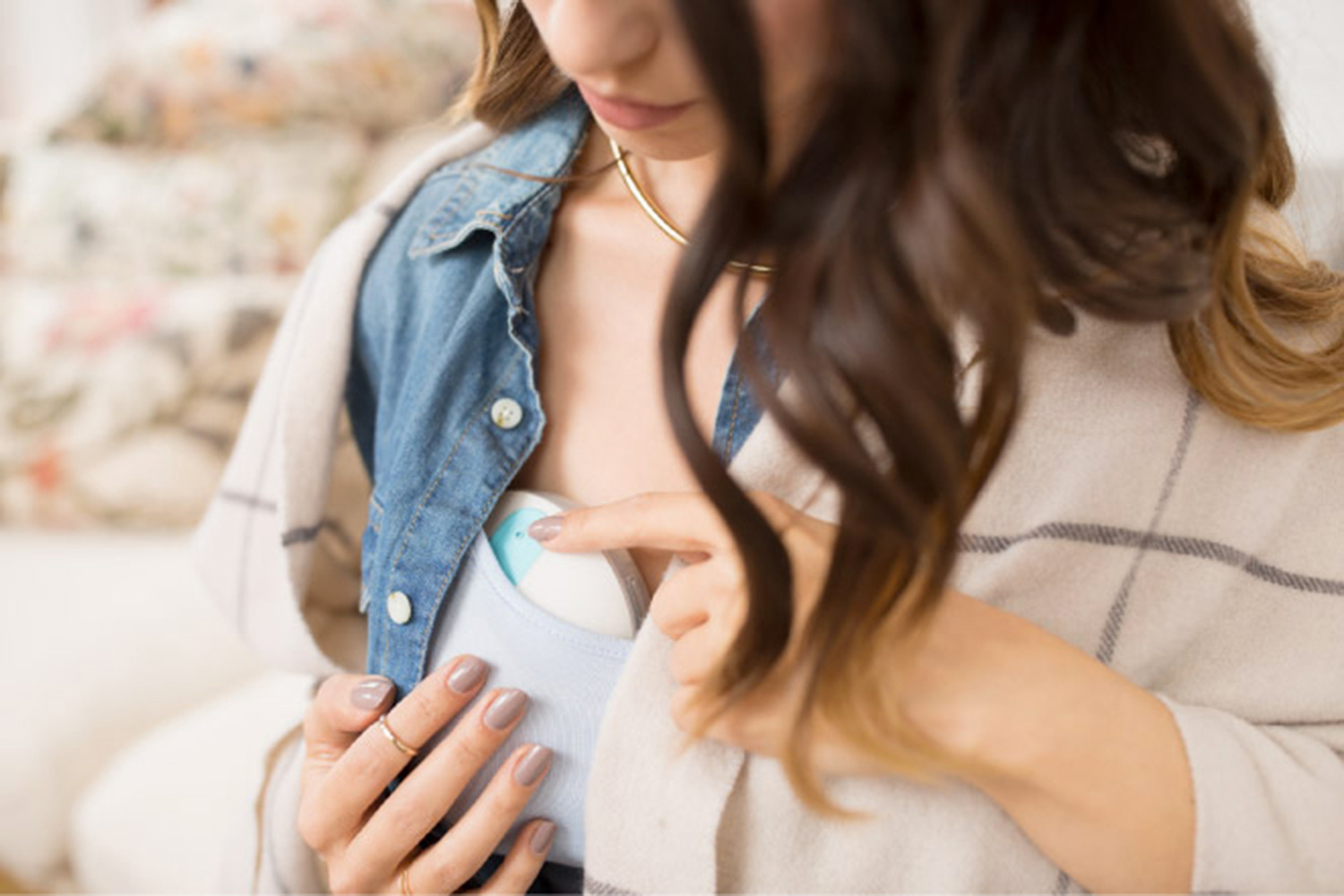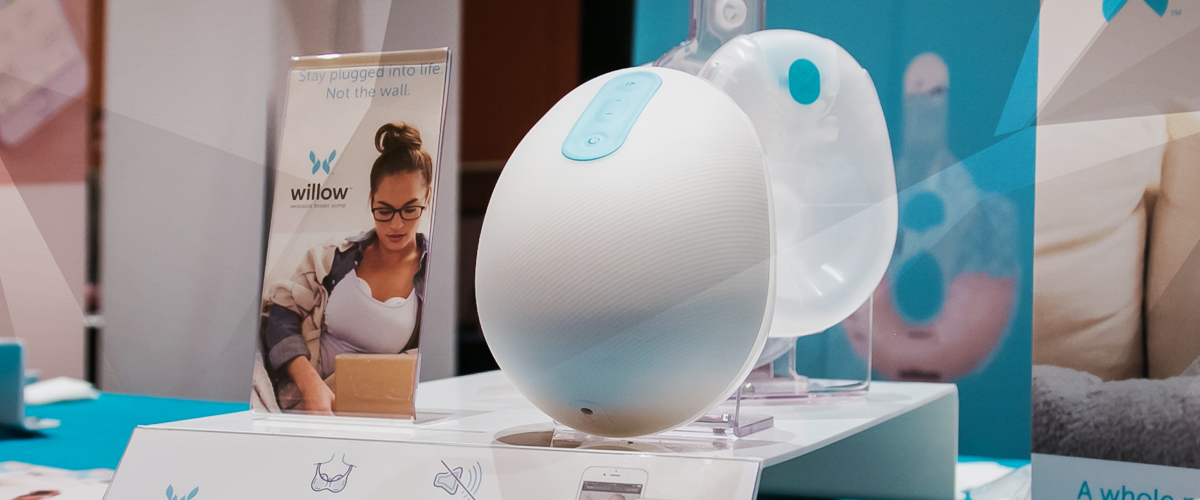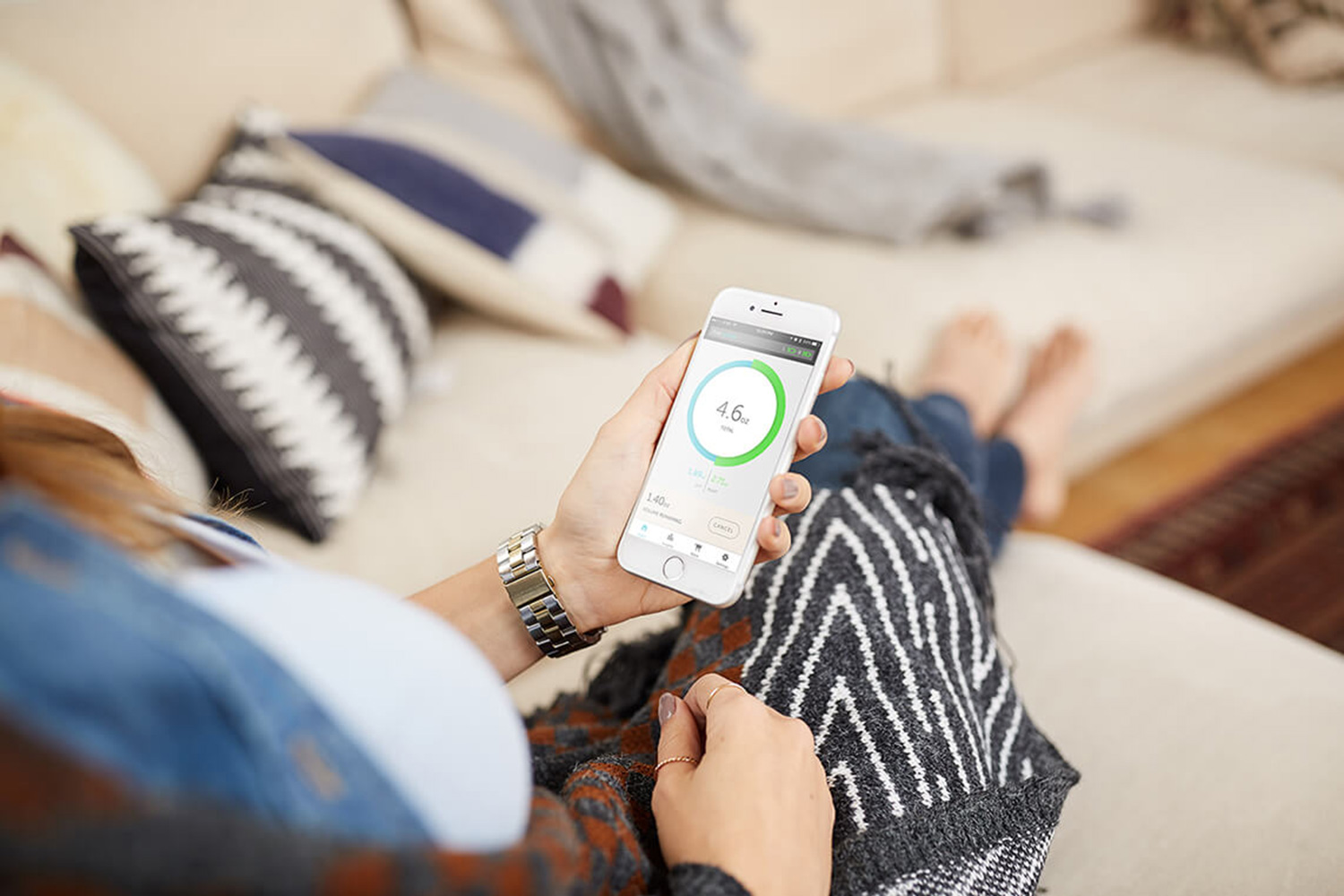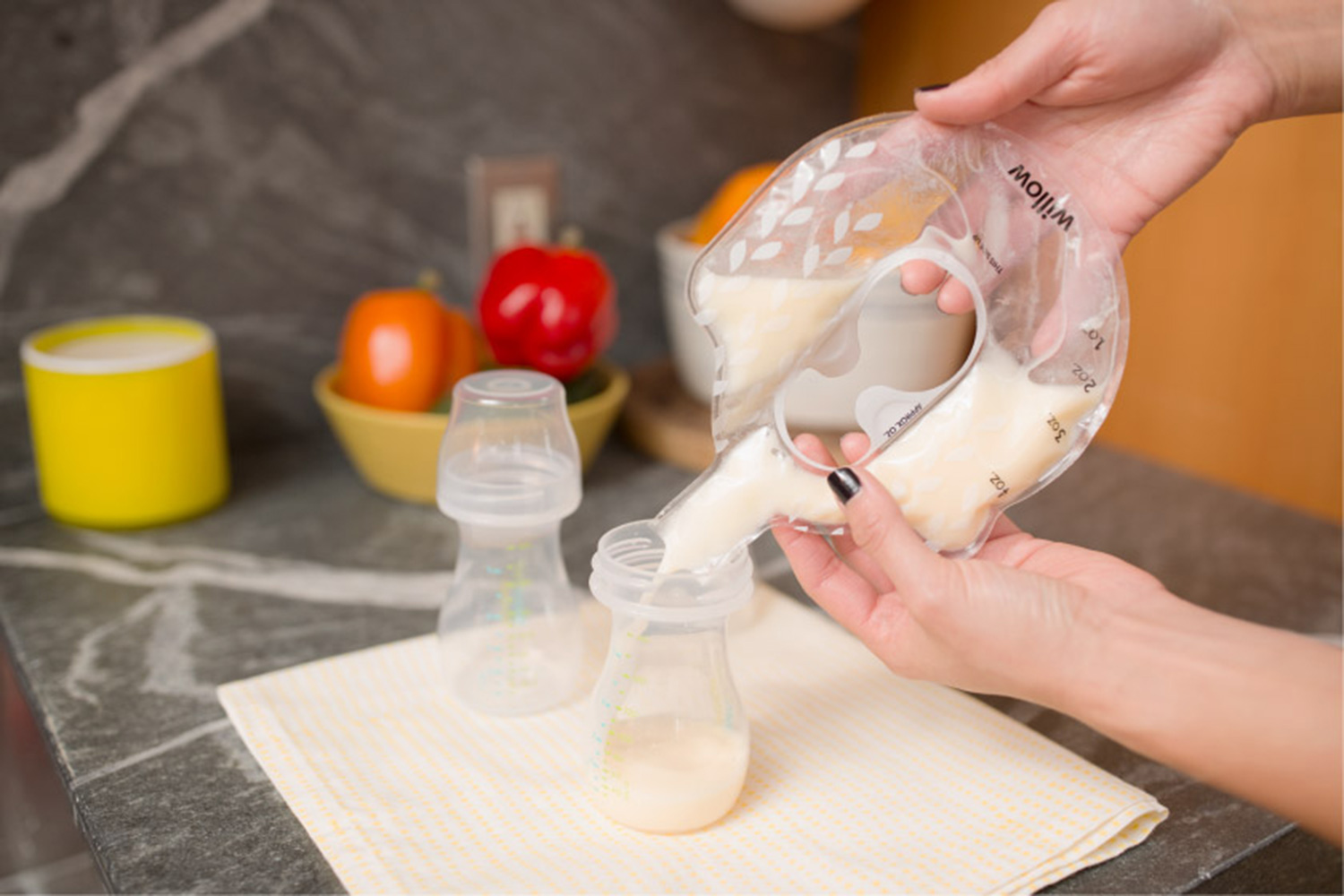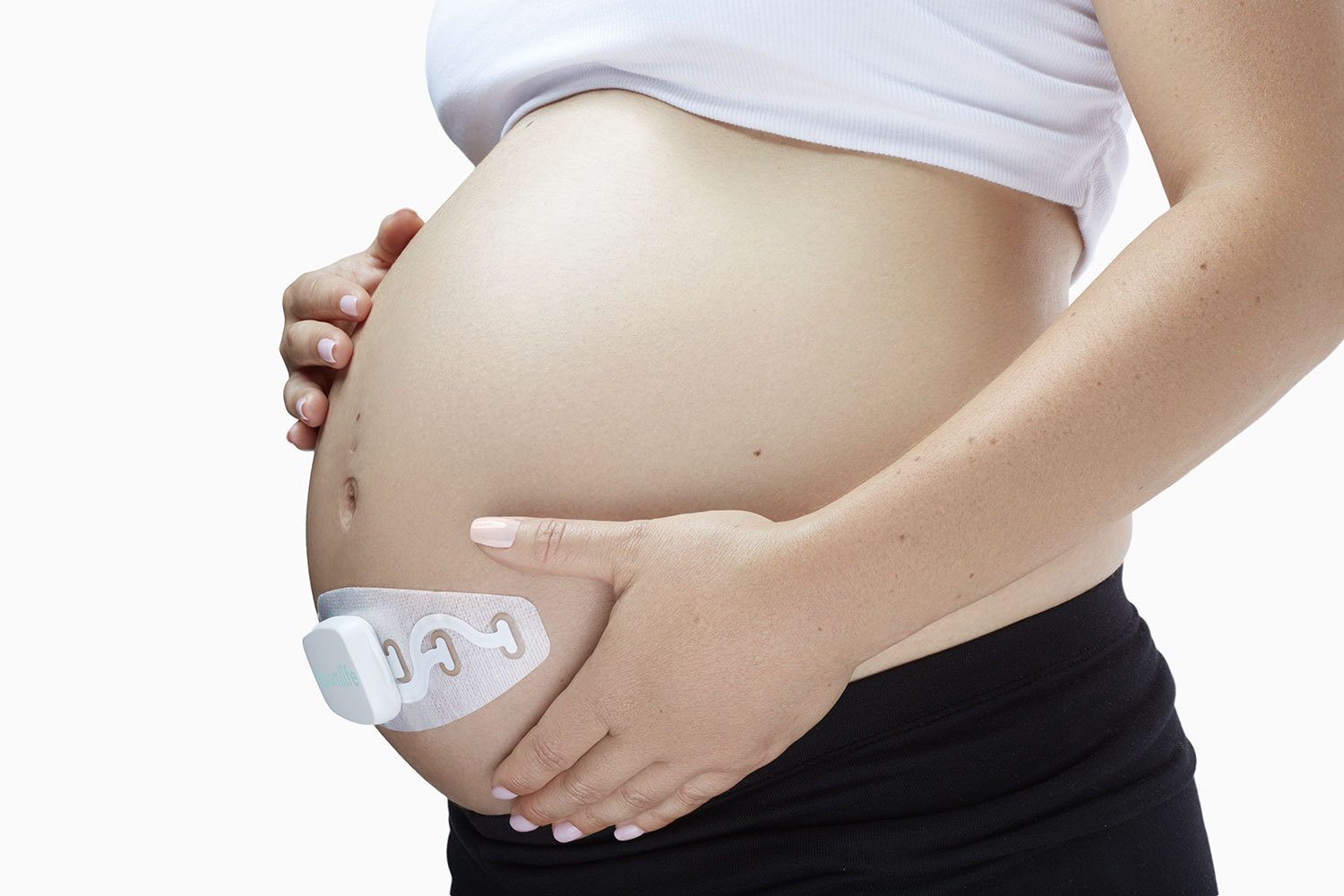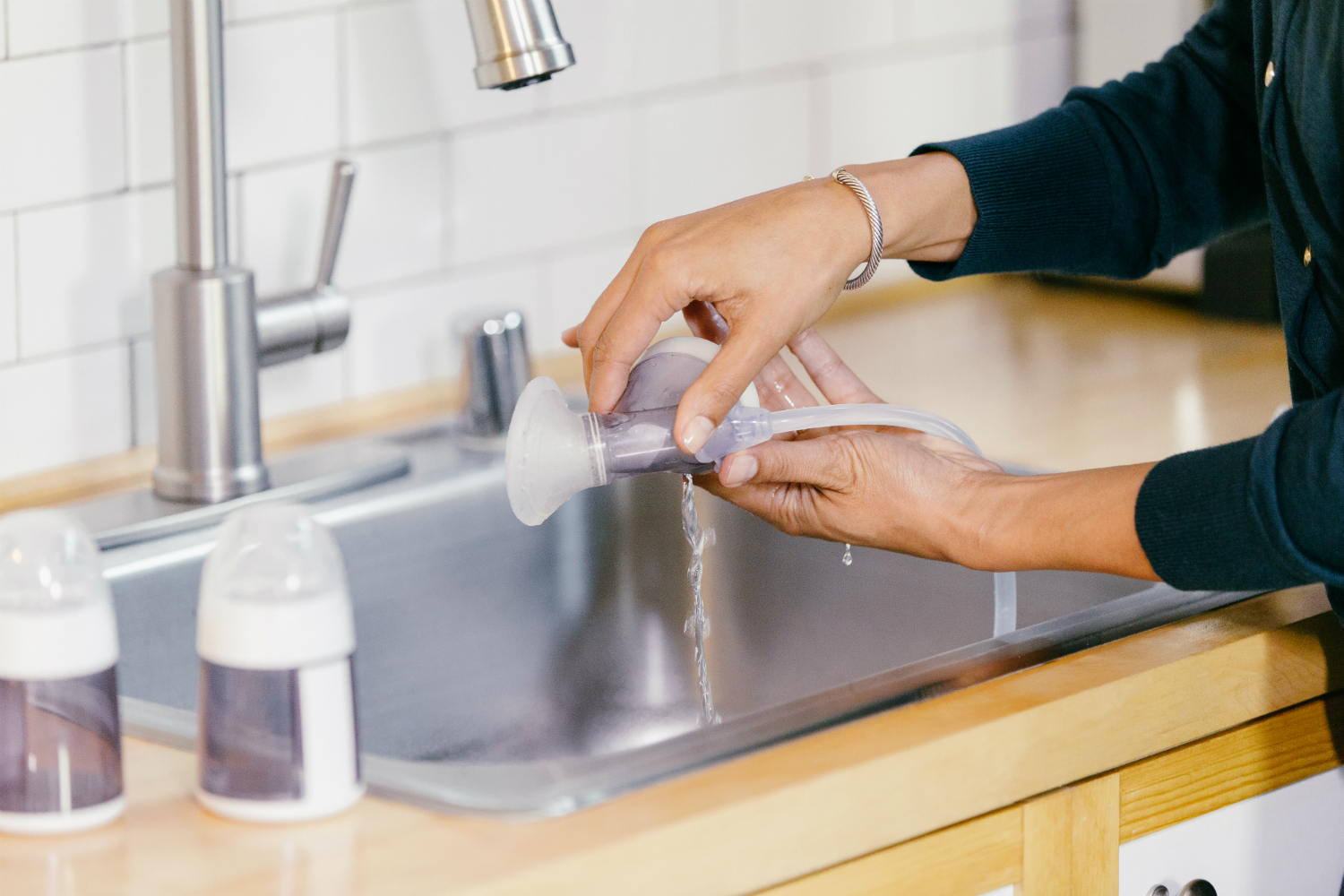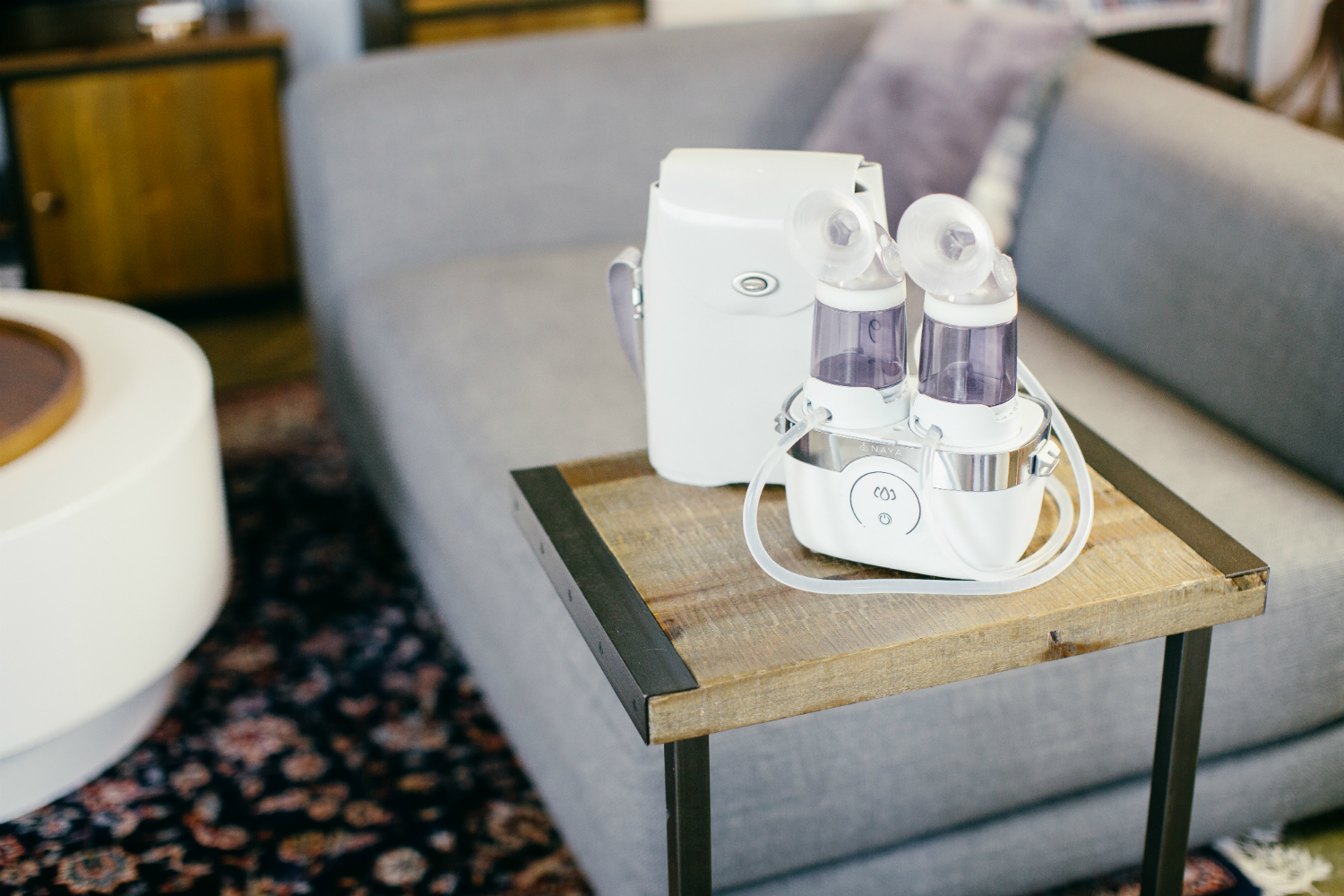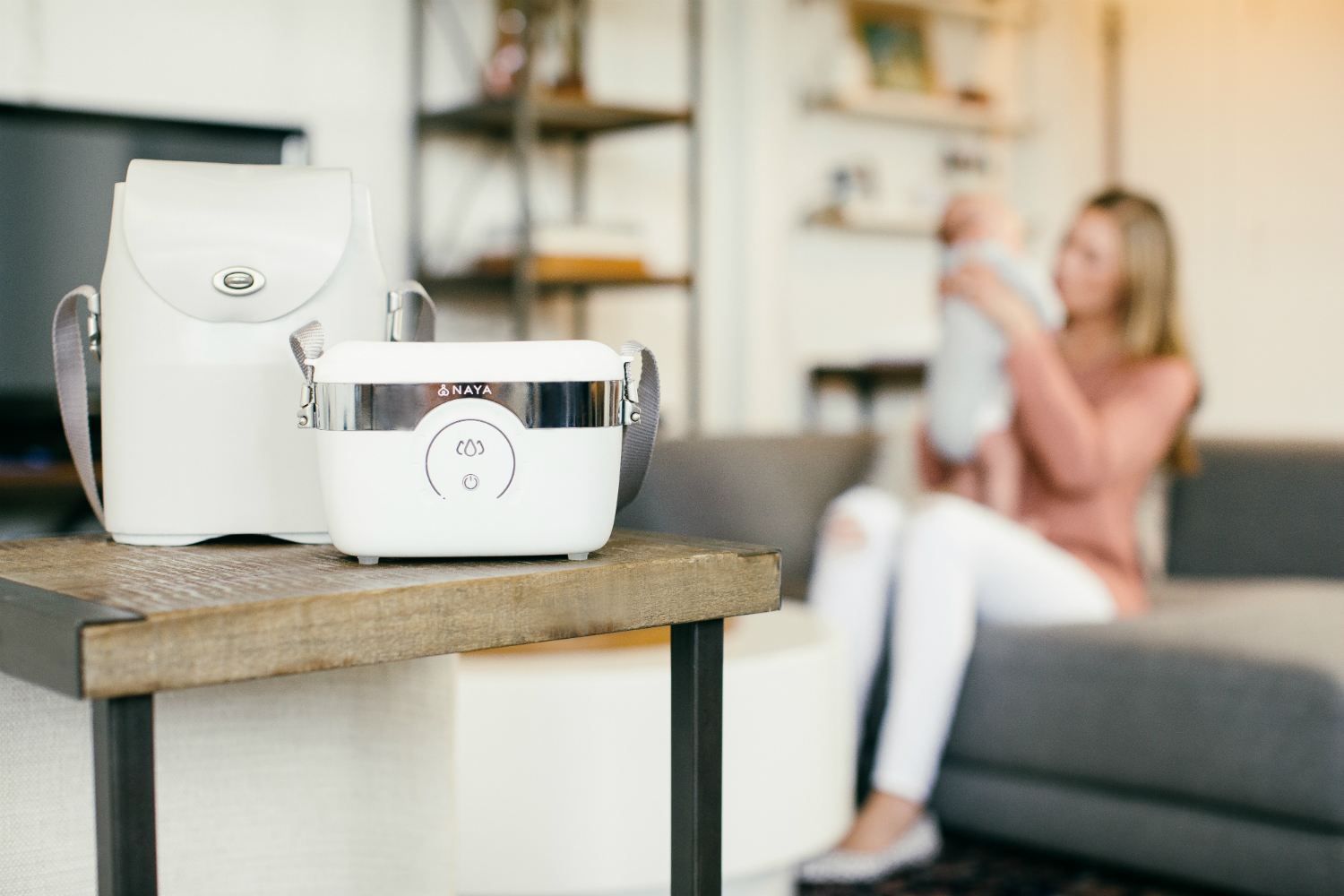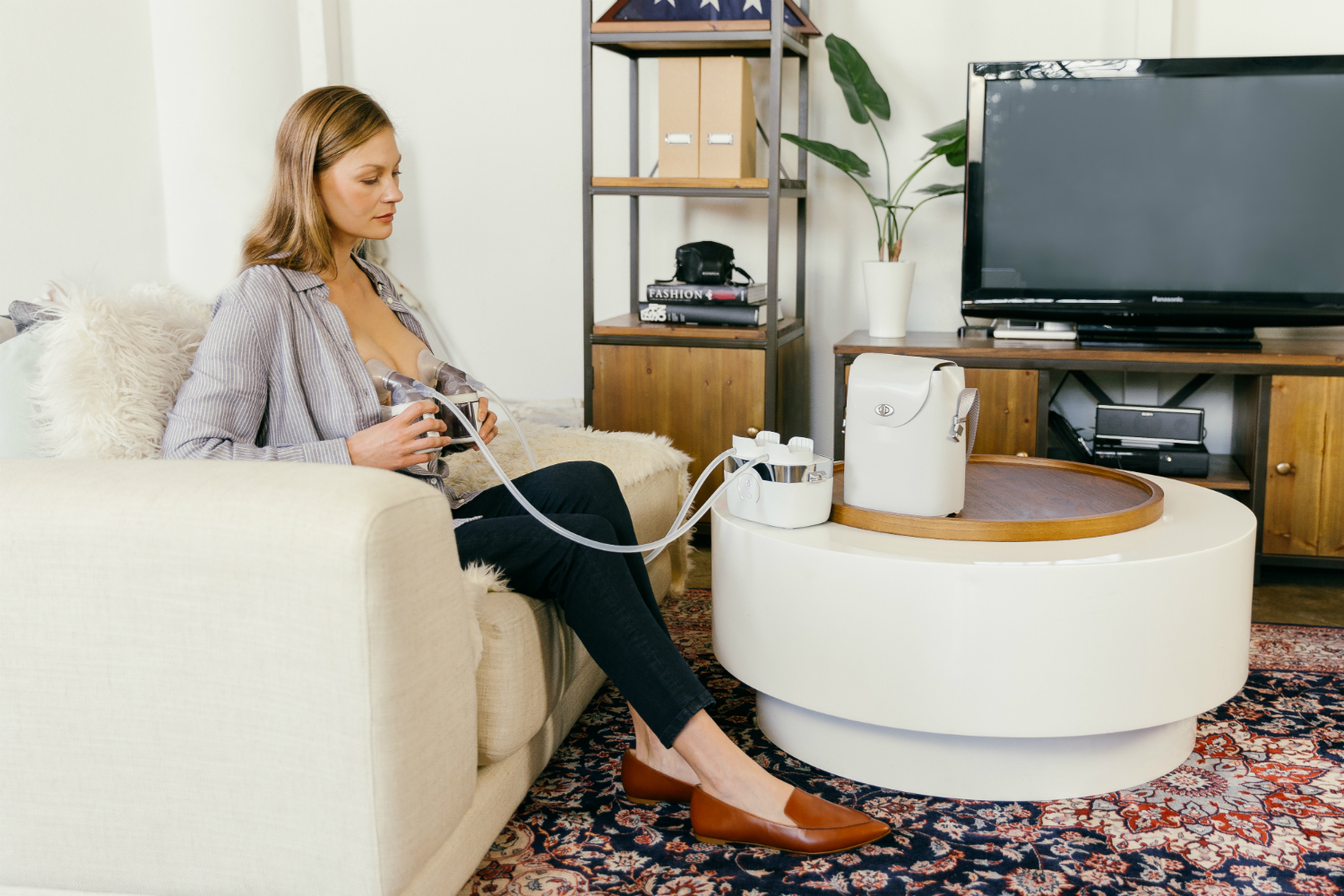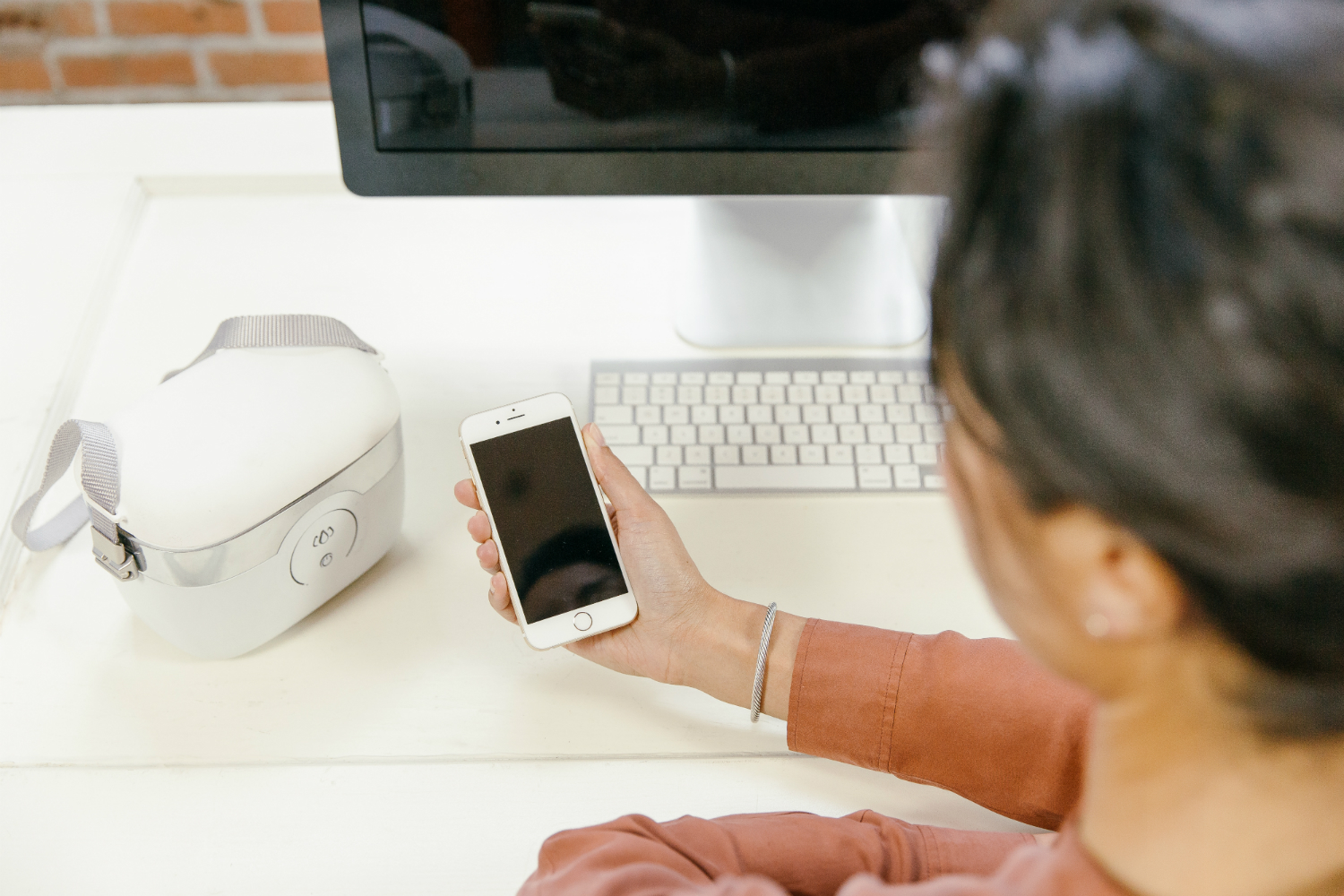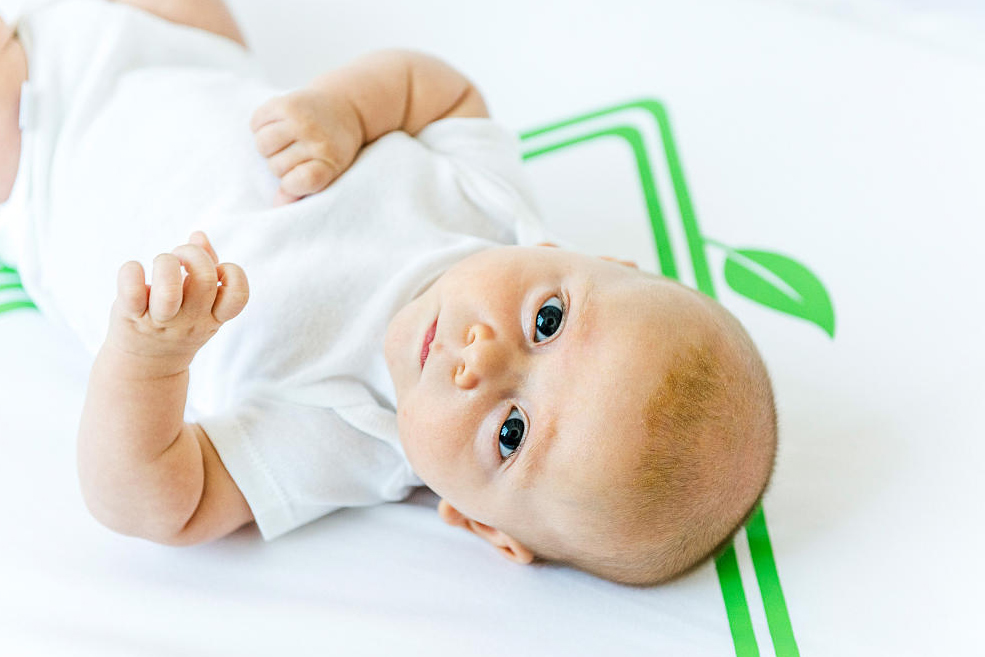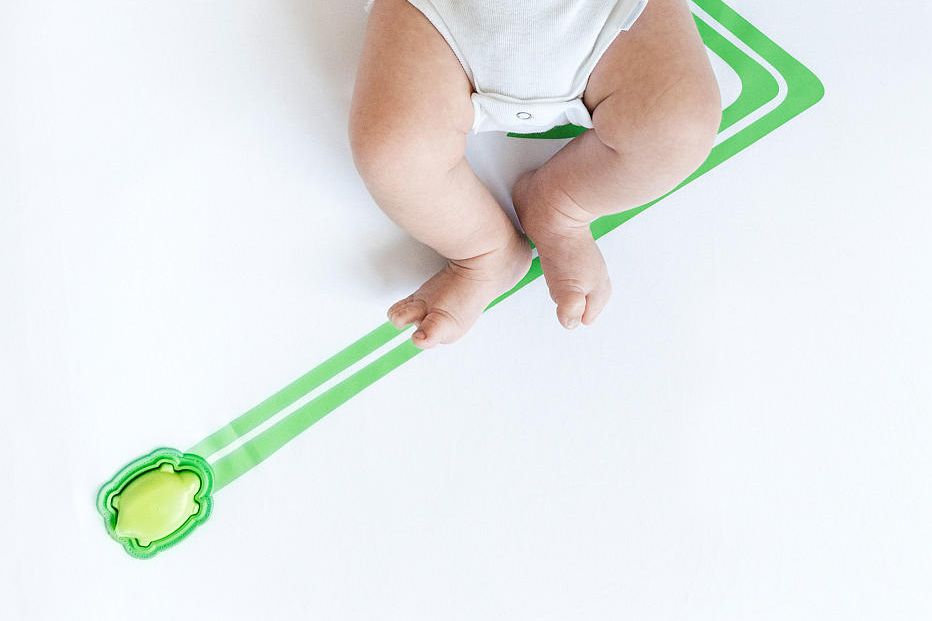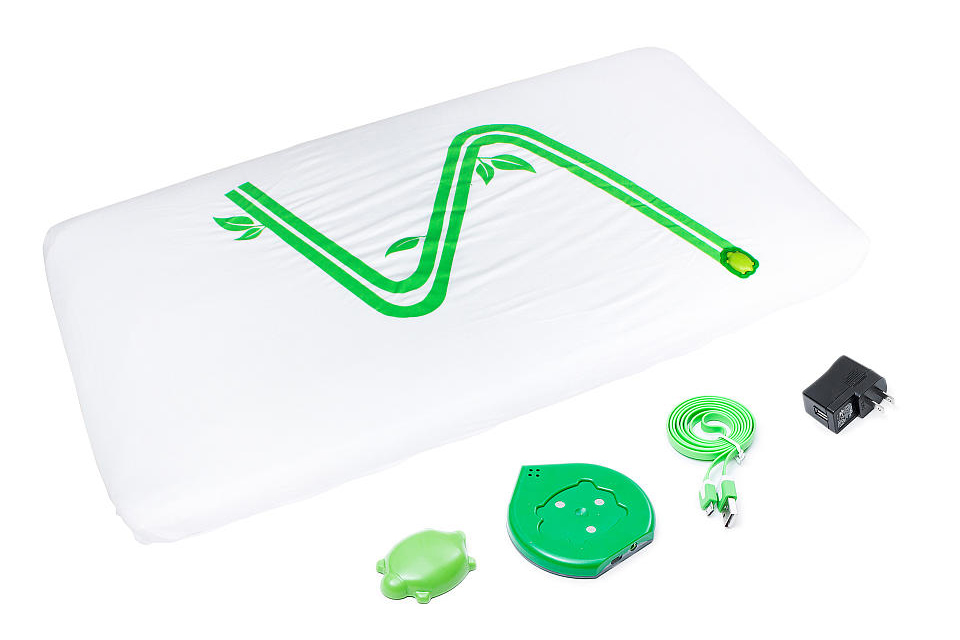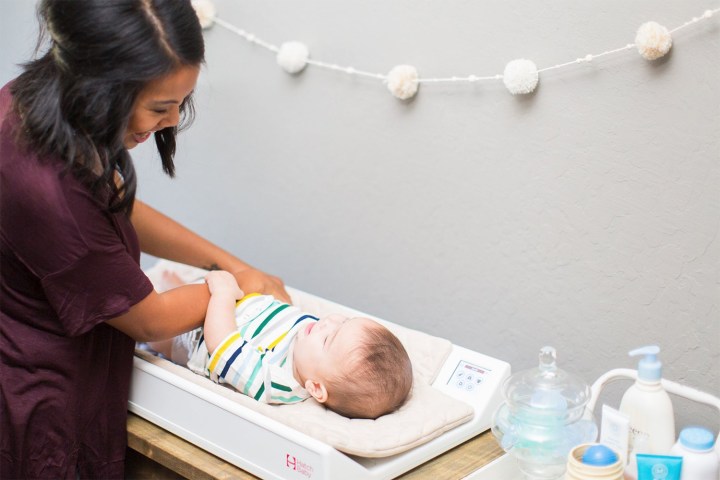
Willow breast pump
Pumping breast milk for later use has never been easier than it is with Willow. This amazing wearable breast pump is small enough to slip into your bra and subtle enough to use in public. There are no wires, you only have to clean a few simple parts, and it’s very easy to use. You simply open it up, attach a leak-proof bag to collect the milk, and get pumping. The Willow app helps you keep track of when you need to pump, how much milk is collected, and the date and time for each milk bag. The pump is smart enough to know how strong your flow is, too, so the pumping adjusts to suit your body’s needs. Willow is nothing short of a game-changer for women who need to pump milk on the go. Read more here and read why Willow is our award-winner for best wearable here.
Snoo smart cradle

Do you spend hours rocking and cradling your baby, hoping to lull her to sleep? All new parents know the struggle. Although there’s nothing like being rocked by your parents, sometimes a smart cradle can come in to save the day. That’s where the Snoo comes in. This gorgeous, high-end cradle was designed by industrial designer Yves Béhar, so it looks like a work of art. The minimalist design includes lovely wood paneling along the bottom of the cradle, slip-resistant metal legs, and a gorgeous white mesh enclosure that’s soft on the inside for the baby’s comfort. You strap your baby in a cute, little swaddling suit to make them feel happy and cozy, just like they were in the womb, and it buckles into the crib itself. The crib rocks at a variety of speeds and emits white noise to mimic the sounds a baby hears in the womb. The Snoo smart cradle is based on hard science, thanks to its creator, pediatrician and author Harvey Karp, and a team of Massachusetts Institute of Technology engineers. It’ll help your baby — and you — get back to sleep in peace, but the ultimate aim is to reduce sudden infant death syndrome (SIDS) by ensuring your baby sleeps safely.
Hatch Baby smart nursery line

Hatch Baby makes a number of smart baby tech devices for the nursery, including a smart nightlight that changes colors and sounds; a scale that tracks the baby’s weight before and after feedings or diaper changes; and a device to hear and share your baby’s heartbeat from inside the womb. All of these devices sync up with apps, so you can control the devices and keep tabs on data. The smart scale helps you keep track of your baby’s weight, and you can share that data with pediatricians. The nightlight is supposed to help your baby sleep better with different sounds and light colors that mimic the womb’s conditions. Of course, the heartbeat tracker is perfect for expecting moms who want to share the experience with their families.
Bloomlife contraction wearable
Bloomlife helps your baby travel safely into this world by keeping tabs on contractions. This wearable sticks right onto your belly full of baby to track contractions. That way, you know when you’re actually going into labor and when you’re having a false alarm. The wearable can also tell you if anything is abnormal or if you need to go to the hospital straight away. You can see the data in the app and keep tabs on changes. Bloomlife hopes to add more features to its app as time goes on, including infant heart rate tracking and much more. It’s a very helpful wearable for those who live far away from the nearest hospital, and any woman who is concerned about early contractions or premature birth. Bloomlife is available for order at$150 for 1 month, $250 for 2 months, and $300 for 3 months. Read more here.
Naya breast pump
Naya takes a different approach to pumping milk with its water-powered system that is meant to mimic the sucking action of your baby’s mouth. We saw the pump in person and felt the little pull on our finger — it was amazing, just like a baby. Naya says this helps moms produce milk faster and get pumping done with ease. The pump is small and portable, with a rechargeable battery pack base that lasts 180 minutes, which equates to two days’ worth of pumping, so you don’t have to deal with any wires. The design even makes it easier to clean by cutting down on parts, and you can track your milk supply and schedule right in the app. Naya even gives you a cute bag for a carrying case as a fun bonus. It’s pricey at $1,000, but it definitely does make pumping suck less. Read more here.
Mattel and Nabi Aristotle smart home assistant

Mattel and Nabi teamed up to make Aristotle, a smart home assistant built for babies. Using artificial intelligence, natural language processing, and Internet of Things technology, Aristotle can keep a digital eye on your kid. However, it’s more than just a great baby monitor. Aristotle can talk with your child and continues to interact more as your child grows. Aristotle can answer questions and even teach. Like Google Home or the Alexa Dot, Aristotle is a voice-controlled hub with a Bluetooth and Wi-Fi Direct speaker, multicolored LED lights, and a Wi-Fi camera with object recognition. It can even dim smart lights, change light colors, sing lullabies, and alert parents when they need to buy more diapers. You can’t buy it yet, but you can read more here.
Nod sleep coach by Mimo
Mimo’s smart baby tracker took the world by storm a few years ago, and now the company is putting all that baby sleep data to good use. Mimo studied 60,000 babies and 350,000 sleep sessions, to come up with customized sleep programs from pediatric sleep experts. The suggestions are fully personalized to fit your needs. The Nod sleep coach app helps you analyze your baby’s habits to figure out how best to get them on the sleep schedule you want. You can also track diaper changes, feedings, and sleep sessions all in the app to get an overview of your baby’s health. If you happen to own a Mimo tracker, the sleep data will be tracked by the device and sent to the app, but you can use it without the tracker, too.
Editors' Recommendations
- Digital Trends’ Tech For Change CES 2023 Awards
- Why Matter is the most important smart home trend from CES 2022
- 5 smart home tech trends we saw at CES 2021
- The best smart home tech of CES 2021
- Digital Trends Top Tech of CES 2021 Awards
